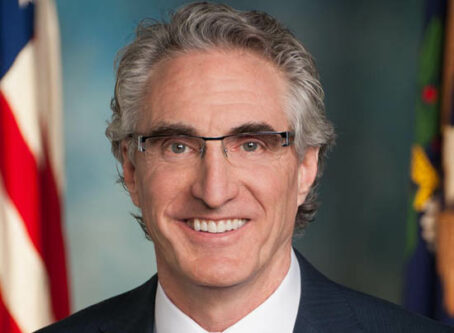Idling rules considered in multiple states
Action underway in multiple statehouses along the Eastern Seaboard address concerns about vehicle idling.
Connecticut
One Connecticut bill calls for expanded enforcement of the state’s idling rules.
The House bill, HB5862, would authorize local enforcement of a state regulation prohibiting idling of a vehicle for more than three minutes.
Currently, the state Department of Energy and Environmental Protection is solely responsible for idling compliance and enforcement. Police are authorized to ticket for idling violations of school buses.
Exceptions are made for situations that include when it is necessary to defrost, heat or cool equipment, and when the temperature is below 20 degrees.
The bill is in the Joint Committee on Planning and Development.
New Jersey
A New Jersey Assembly bill would revise the state’s time limit for idling of many cars and trucks.
State law now limits idling of gas- and diesel-powered vehicles to no more than three minutes, with exceptions.
First offenses for passenger vehicles can result in $100 fines and $250 for commercial vehicles. Subsequent offenses can result in fines between $200 and $1,000.
Current exceptions
One exception authorizes diesel vehicles to idle for up to 15 consecutive minutes when the vehicle has been stopped for at least three hours, and only if the temperature is below 25 degrees. Additionally, no truck idling is permitted in a parking space with available electrification technology.
The rule also states there is an exception for trucks equipped with a sleeper berth and model year 2007 or newer engine, or has been retrofitted with a diesel particulate filter, while it is being used by the vehicle’s operator for sleeping or resting in an area that is not zoned as residential.
The exception does not apply to a vehicle that is equipped with a functional auxiliary power unit or the operation of technology designed to reduce engine idling, such as auxiliary power units, generator sets, and bunk heaters, provided the vehicle’s main engine is not operating.
All vehicles are exempted from the idling rule when stopped in traffic, waiting for vehicle inspection, or while being repaired, and for cargo refrigeration requiring engine power.
Time limit change
Sponsored by Assemblyman Joe Danielsen, D-Middlesex, the bill would reduce the idling restriction for gas- and diesel-powered vehicles from three minutes to two minutes.
The New Jersey Department of Environmental Protection states that “modern diesel vehicles do not need to keep engines running to properly function.” Additionally, the agency says “idling produces ground level ozone and particulate pollution. These can create asthma attacks, wheezing, coughing, lung cancer, even premature death.”
The bill, A5102, is in the Assembly Transportation and Independent Authorities Committee.
New York
Two New York bills address idling.
New York state law limits idling time for heavy-duty vehicles with a gross vehicle weight exceeding 8,500 pounds to five consecutive minutes. Violators face fines between $500 and $18,000.
S1178 would add passenger vehicles to the idling restriction. Additionally, the time limit for passenger vehicle idling would be set at three minutes.
The first violation would be a warning. Subsequent violations could result in $150 fines.
Certain exceptions would apply.
A memo attached to the bill states that it “seeks to address the fact that more than half of New York’s 19 million residents live in counties where unhealthy air endangers their lives and health.”
The memo notes at least 22 municipalities, including cities, counties, villages and towns throughout the state have adopted anti-idling laws or regulations.
The bill is in the Senate Environmental Conservation Committee.
A related Assembly bill covers idling in New York City.
A721 covers the fine that the parking violations bureau in New York City may impose for idling for longer than three minutes while parking, standing or stopping. Specifically, $150 fines would be authorized.
The bill is in the Assembly Transportation Committee. LL









